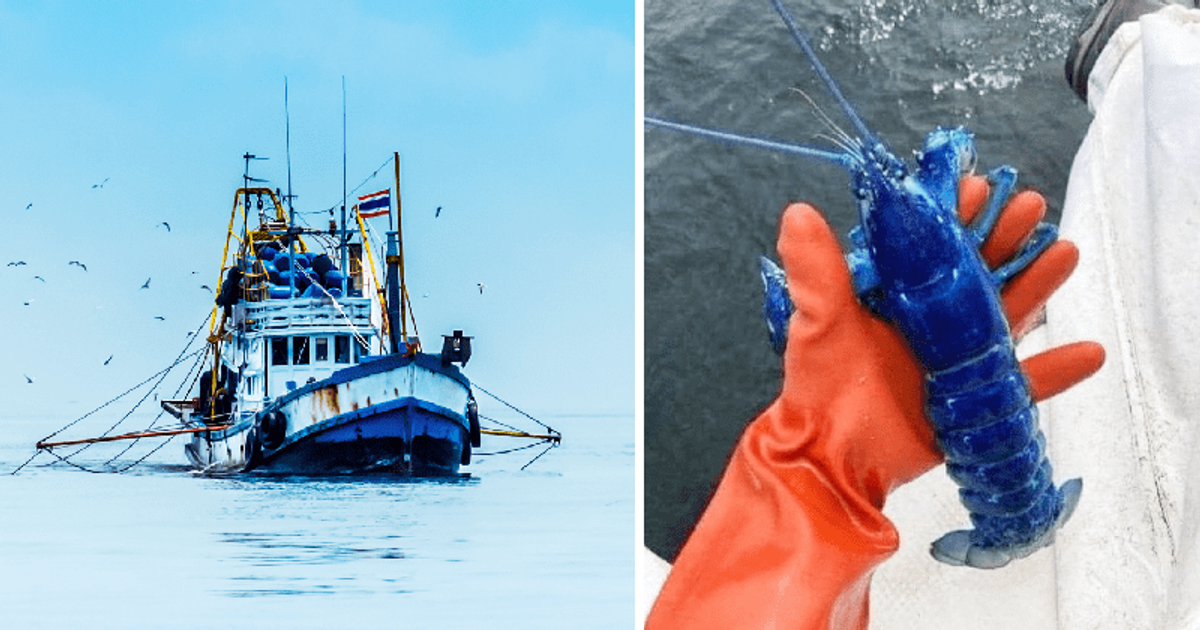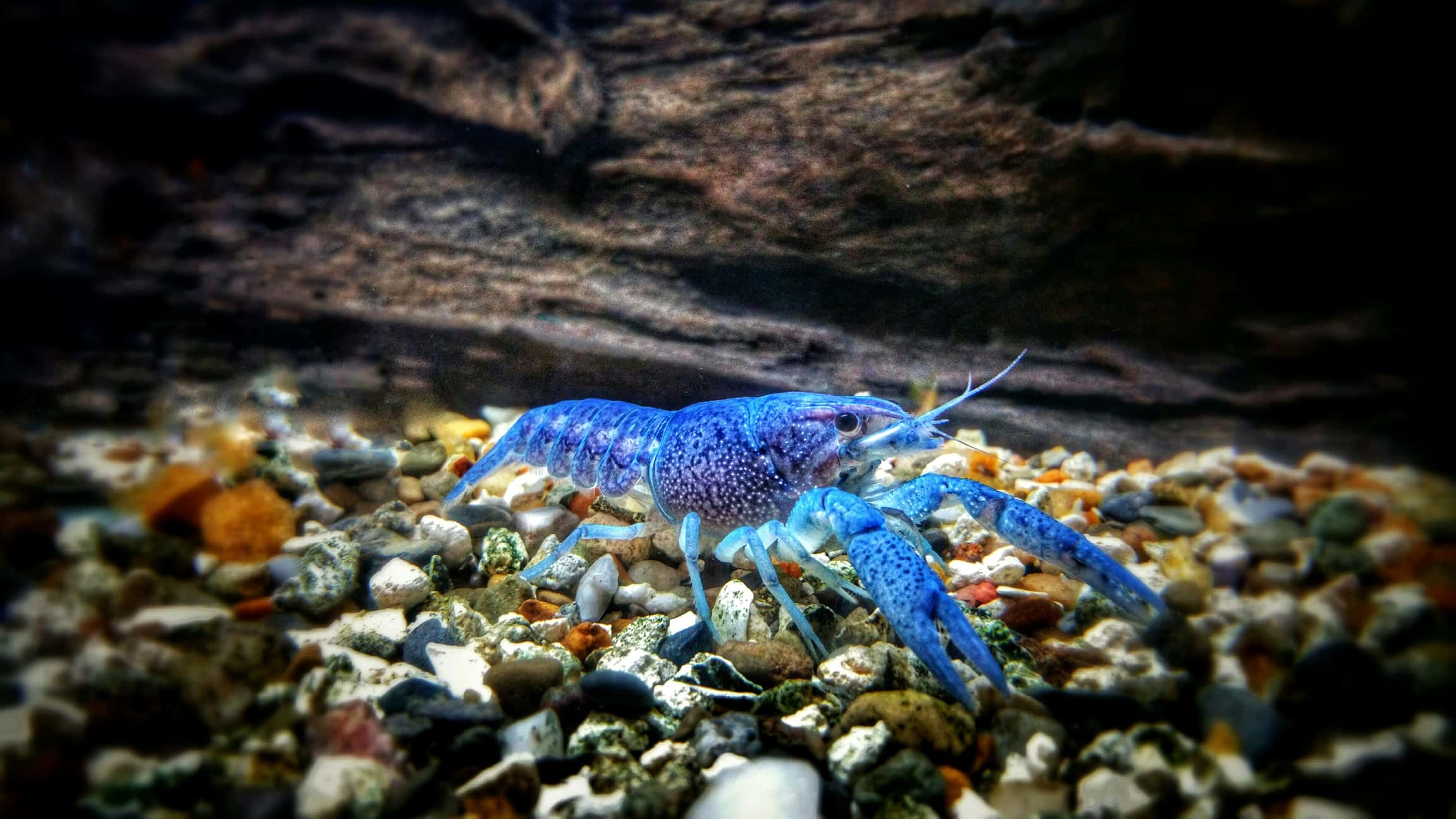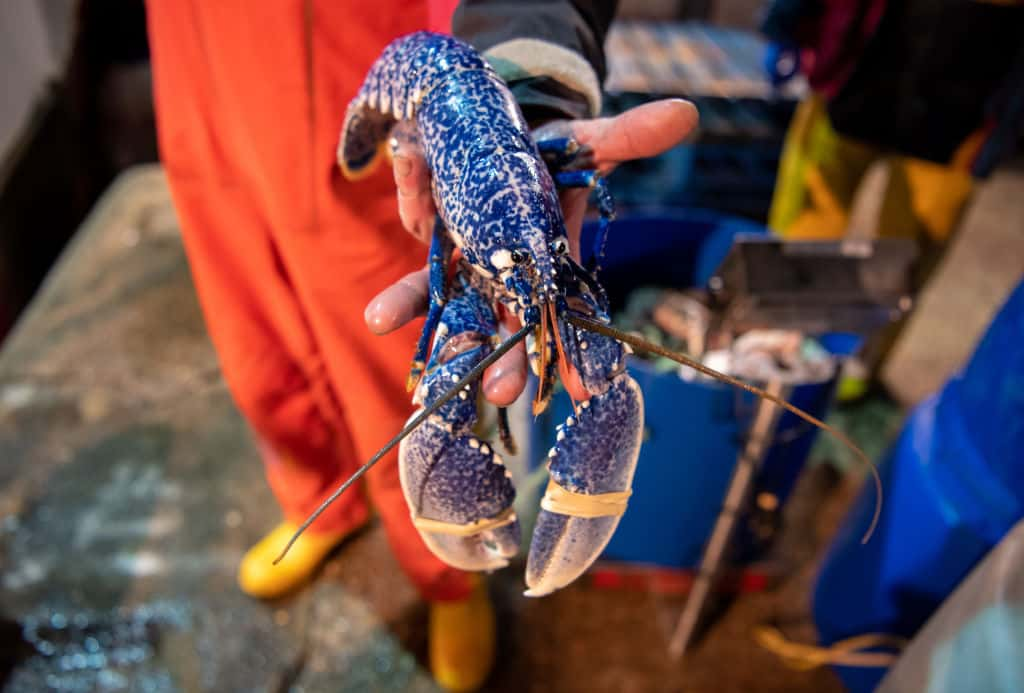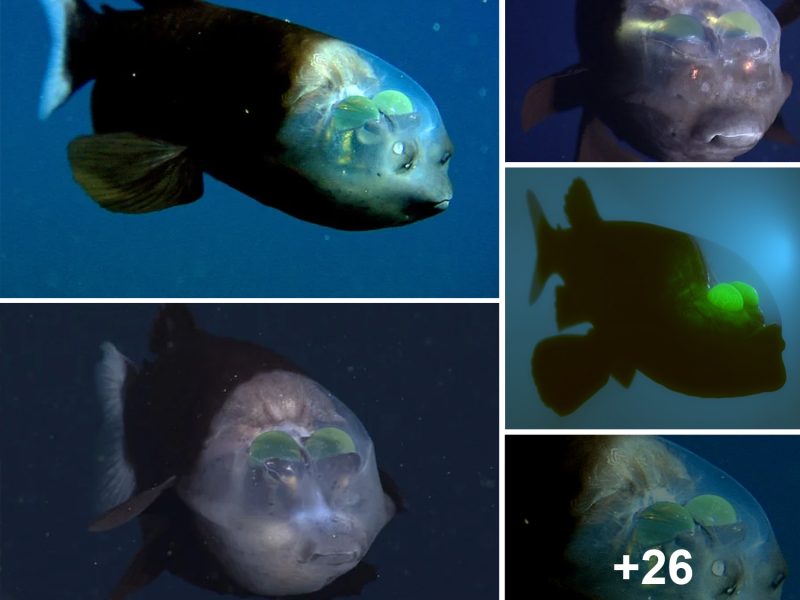The crustacean’s blue shell is a result of a genetic mutation that causes the lobster to produce more of a particular protein, giving its shell a rare blue color.

A fisherman from Portland, Maine, caught a very rare bright blue lobster before throwing it back into the ocean. The fisherman caught the lobster off the coast of Maine. The photo of the blue lobster was shared by tech entrepreneur Lars-Johan Larsson. “This blue Lobster was caught off the coast of Portland yesterday and returned to the water to continue to grow. Blue lobsters are one in 2 million,” he wrote. While the shells of lobsters are generally red or brown in color, the crustacean’s blue shell is a result of a genetic mutation. It causes the lobster to produce more of a particular protein than other lobsters, lending its shell a rare blue color, reported Toronto Sun.

Blue lobsters are extremely rare, but given the number of lobsters being caught for consumption, it’s inevitable that a few of them are blue in color. Fishermen also believe it’s a sign of good luck to catch a blue lobster, reported BBC. The lobsters caught in North Atlantic tend to be greeny-brown and turn pinkish-red on being boiled, which is what most people who consume them see. “The American lobster is usually a sort of greeny-brown, so anything bright blue would look very odd to fishermen there,” said Charlie Ellis, a researcher at the U.K.’s National Lobster Hatchery, in Cornwall. “But European lobsters tend to be a duller blue color. The real sort of iridescent blue is still rare here, but the difference is that, to a European fisherman, it will seem less completely out of the ordinary than it would seem to a North American.”
Yellow, orange and crystal-colored lobsters are considered even rarer than bright blue ones. According to Lobster Institute, yellow lobsters account for about one in 30 million of total stocks, while the chances of catching an albino or “crystal” lobster are believed to be one in 100 million. Two fishermen in Dorset caught a crystal lobster in 2011. “Whatever the odds of catching different-colored lobsters, there’s no denying that bright blue ones are truly beautiful creatures,” said Rob Bayer, executive director of the University of Maine Lobster Institute. “They might not be the most unusual, but they are undoubtedly the best to look at.”
Some restaurants made the news for getting a blue lobster along with its catch and giving it a new place to live. It’s become something of a trend for restaurants to spare blue lobsters. Austin Hopley, a chef at “The Hare” in Rochdale, U.K., made news for sparing a bright sapphire-colored lobster. Hopley said he suffered a “crisis of conscience” and decided to spare its life and even named it Larry. Hopley gave the lobster to Sea Life in Manchester, where it continues to live, reported BBC News. Hopley said he hadn’t seen anything like this before. “I knew the morally right thing to do was to find him a home where everybody could appreciate him,” he said. “I found out it was really rare, so I thought ‘I can’t kill this, I don’t want to’. We couldn’t see it through and put it on the menu. We spent hours contacting places. I was worried about how long it could spend outside the water so I called a load of different small aquatics shops and everyone was really helpful.”
He finally got in touch with Merlin Entertainments who own Sea Life and they were really happy to take it. “They sent someone out to get him and now he’s there for people to enjoy,” said Hopley. “I felt like I needed to make sure it happened. I felt responsible. Something so rare didn’t warrant a place on the menu,” he added. “Every species deserves a fair chance at survival,” said Hopley, who has since removed all lobster from his menu. Brendan Malone, a curator and marine expert from Sea Life said: “It is certainly an extraordinary find and worth saving to try to educate the public about these amazing creatures in the ecosystem.”

WEYMOUTH, ENGLAND – JANUARY 22: A rare blue lobster is seen during the unloading of the Dartmouth Crab Company fishing vessel MFV William Henry II on January 22, 2021, in Weymouth, England. (Photo by Finnbarr Webster/Getty Images)


